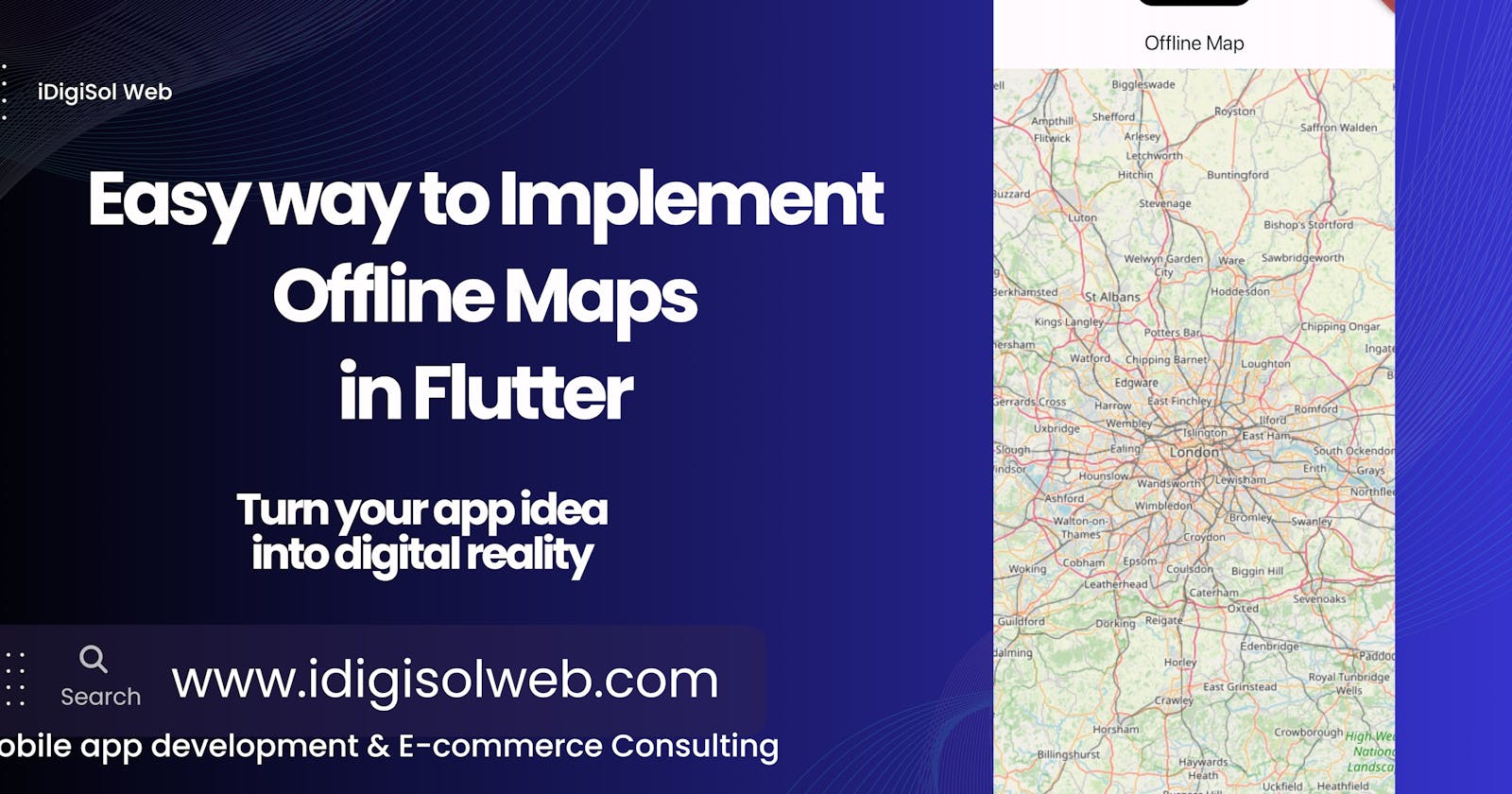Offline maps can be incredibly useful in Flutter applications, especially for users who may not always have access to reliable internet connections. Implementing offline maps can enhance user experience and ensure functionality even in areas with limited or no internet connectivity. In this guide, we’ll explore the easiest way to integrate offline maps into your Flutter application using the flutter_map and latlong2 packages.
Step 1: Install Dependencies Begin by adding the required dependencies to your pubspec.yaml file:
dependencies:
flutter:
sdk:
flutter flutter_map: ^6.1.0
latlong2: ^0.9.0
After updating your pubspec.yaml file, run flutter pub get to install the new dependencies.
Step 2: Implement Offline Map Screen Now, let’s create a Flutter screen to display the offline map. We’ll use the flutter_map package to render the map and the latlong2 package to handle geographical coordinates.
import 'package:flutter/material.dart';
import 'package:flutter_map/flutter_map.dart';
import 'package:latlong2/latlong.dart';
void main() { runApp(MyApp()); }
class MyApp extends StatelessWidget {
@override Widget build(BuildContext context) {
return MaterialApp(
title: 'Offline Maps',
theme: ThemeData( primarySwatch: Colors.blue, ),
home: OfflineMapScreen(),
);
}
}
class OfflineMapScreen extends StatelessWidget {
@override Widget build(BuildContext context) {
return Scaffold(
appBar: AppBar( title: Text('Offline Map'), ),
body: FlutterMap(
options: MapOptions(
center: LatLng(51.509364, -0.128928),
zoom: 9.2, ),
layers: [
TileLayerOptions(
urlTemplate: 'https://tile.openstreetmap.org/{z}/{x}/{y}.png',
userAgent: 'com.example.app',
),
],
),
);
}
}
Step 3: Run Your Application You can now run your Flutter application to see the offline map in action. The map will initially display at the specified coordinates and zoom level, utilizing OpenStreetMap tiles for rendering.
Why Use Offline Maps in Flutter? Offline maps offer several benefits in Flutter applications. Firstly, they provide uninterrupted access to maps and location-based features, even in areas with poor or no internet connectivity. This is crucial for applications that rely on maps for navigation, tourism, or outdoor activities where internet access may be limited. Additionally, offline maps can improve performance and reduce data usage, enhancing the overall user experience. By integrating offline maps into your Flutter application, you can ensure reliable functionality and increased usability for your users, regardless of their internet connection status.

